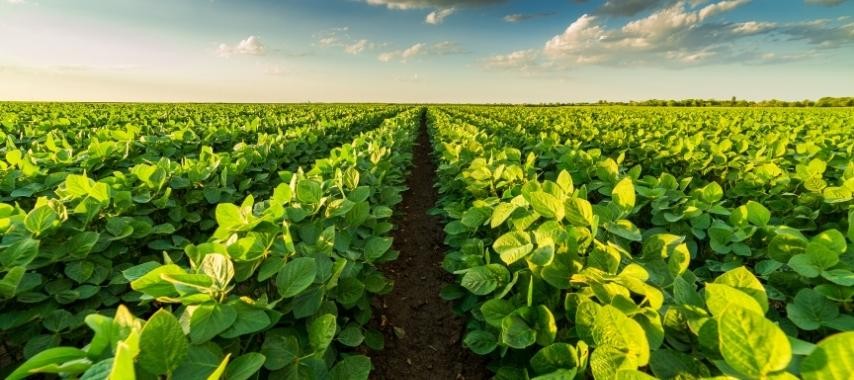

Published on Nov 21st, 2023

In recent years, organic farming has become more than simply a trend; it has become a full-fledged revolution. Imagine browsing the farmer's market when you come upon a bin of ripe, luscious tomatoes that virtually shout, "Eat me!" You reach for one, and what do you find? It's organic! But why is organic farming so popular, and why should we care? Let's discover how organic farming alters the game in agriculture as we set off on our organic expedition together.
Farmers have employed pesticides to protect their crops from damaging plant diseases for a long time. Our crop productivity did increase thanks to these chemicals, but they also brought up a lot of issues. These chemicals can remain on our crops, contaminating the ecosystem and making life difficult for beneficial insects and animals. Not to mention that consuming foods that have pesticide residues might harm our health and increase our risk of developing diseases, including cancer, abnormal growth, and hormonal irregularities. Pesticides do indeed perform a variety of functions.
What does "organic" even entail in the context of farming, first things foremost? Natural processes are used extensively in organic agriculture, responsible resource management, and biodiversity preservation. It's like farming with nature rather than against it. GMOs and synthetic chemicals are strictly prohibited, with a significant focus on sustainable practices.

The organic revolution's commitment to reducing or eliminating synthetic pesticides is among its most essential features. Pesticides protect crops from destructive bugs in conventional farming like superheroes, yet they often leave hazardous residues on our food. Organic farmers employ natural alternatives like neem oil and diatomaceous earth to keep pests away, guaranteeing that fruits and vegetables are pesticide-free.
Choose organic foods and organic ingredients to safeguard the environment and your health. This leads to a healthier you and a healthier planet.
For Your Well-Being: When you eat organic foods, you're treating yourself to more appealing produce and benefiting your body. Because they are grown without synthetic pesticides, organic crops tend to have far lower chemical residues. As a result, you will be exposed to fewer unpleasant, potentially hazardous compounds that can enter your body. Your body will appreciate it.
A clean Buzzing Planet: Let's now discuss our world. Organic farms are more than just vegetable fields; they resemble dynamic mini-ecosystems. Imagine a scene with bees, butterflies, and other pollinators fluttering around, carrying out their vital function. Why is that significant? Since these creatures aid in plant reproduction, we benefit from more fruits and vegetables. The problem is that chemicals used in traditional farming are forcing these dedicated pollinators to struggle. They thrive in organic farms, creating a more wholesome and alive environment for all of us.
Soil Love: Organic farming is all about taking care of the earth. Farmers use organic farming methods rather than synthetic fertilizers to keep the land fertile and alive.
Black Gold: Compost - The Soil's Nutrient Buffet: Organic farmers are like soil wizards; compost is their secret weapon. They recycle kitchen scraps, plant clippings, and other organic matter into nutrient-rich compost rather than saturating the land with synthetic fertilizers. A gourmet meal for the soil is black gold, which has the vital elements that plants need to thrive.
Cover Crops: Imagine your soil as a comfortable bed, and think of cover crops as warm blankets. When the primary crop isn't in the ground, these plants are cultivated to cover the soil instead of being harvested. In addition to preventing erosion and weed growth, they degrade and add organic matter. It's like nature is tucking the soil away to keep it healthy and fertile all year long.
The Food Web in the Soil: A thriving metropolis of minute organisms, including earthworms, bacteria, fungi, and more, exists beneath our feet. The key to maintaining the prosperity of this underground metropolis is organic gardening. These soil bacteria feed on the organic matter from cover crops and compost, which breaks down nutrients and makes them available to plants. This underground cooperation produces nutrient-rich soil that naturally feeds crops.
A Healthier Soil Beneficial For All: It's hardly hyperbole to state that productive soil is the foundation of agriculture. Crops are healthier and better able to fend off pests and diseases when soil is rich in nutrients.
Numerous people affirm that organic produce has a more incredible flavor. This assumption might be accurate given that organic crops are often grown in nutrient-rich soils, producing fruits, vegetables, and organic syrups with more flavor. You can taste the natural bounty of healthy soil when you bite into a delicious organic peach.

Although the organic revolution is hopeful, there are certain obstacles to overcome. Because organic farming often ends in lower crop yields than conventional techniques, organic products may cost more. It can also be expensive and time-consuming for farmers to switch from traditional to organic farming. But if the market for organic products expands, economies of scale and improved productivity might help bridge these gaps.
In conclusion, the organic revolution in agriculture is more than just a passing trend; it is a fundamental shift affecting every component of our food system. We are taking a stand against the ongoing problem of pesticide residues when we choose organic over conventional food and pick cleaner, healthier food.
The dedication of organic farming to natural alternatives, biodiversity, and soil health benefits us and our environment. It lowers our carbon footprint, assists regional farmers, and maintains the delicate environmental balance.
BackBe the first to know about new products, events and offers.